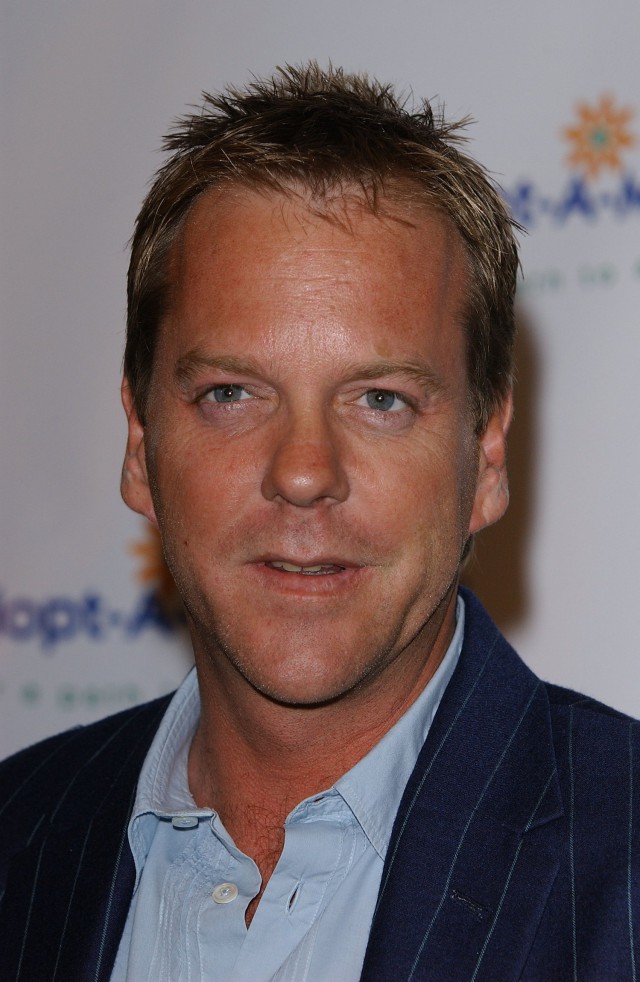
This month’s real-life threat to
could easily have been lifted from an episode of “24.” Or maybe not.
Disengaging a makeshift car bomb would have been as ho-hum as changing
one’s underwear to an agent like
For eight years, he’s thwarted assassinations,
nuclear explosions, nerve-gas attacks and Congressional hearings. But
his most unlikely victory is the one over pundits who predicted viewers
wouldn’t have the stomach to see ominous headlines employed as
high-speed adventures.
But “24” has accomplished just that from the very beginning, premiering on
For a moment, Americans shuddered at anything more
dramatic than Ross & Rachel’s breakup. The TBS cable network
replaced airings of “Lethal Weapon” with “Look Who’s Talking” while
But it didn’t take long for television to unshackle the restraints.
By the end of September,
episode set in the weeks following a domestic attack and “Law &
Order” ended its season with a plot about a Desert Storm veteran who
killed a suspected terrorist. Even “Spin City” got into the act when
the sitcom’s mayor of
But nothing reflected America’s fears more than
“24,” a series that has less to do with its novel approach — Bauer has
24 hours each season to nail the bad guys — and more to do with a
relentless intensity that doesn’t give its hero a chance to use the
lavatory, let alone crack a smile.
“There’s a part of me that’s kind of surprised that people watch ’24’ for entertainment, because it’s so heart-stopping,” said
“The fact that it actually aligned with things that
were happening in the news and made it relevant was really something
that caught us completely off guard,” he said.
It took a while for audiences to catch on as well.
Season one averaged about 8 million viewers, but then bumped up
significantly when it was paired with Fox’s mega-hit “American Idol.”
It peaked in 2006 with nearly 14 million viewers and an Emmy win for
best dramatic series. Ratings have dipped since then, but with 9
million fans, it continues to be a force to be reckoned with.
“24” proved that audiences could not only tolerate “terror TV”; they craved it.
Since its debut, we’ve seen “Sleeper Cell,” the
series that once carried the subtitle: “American Terror,” and “The
Unit,” in which highly trained soldiers take on “Dirty Dozen”-type
missions against foreign enemies. “Lost,” “Battlestar Galactica” and
“V” may be categorized as sci-fi series, but the enemies in those
series — the Others, the Cylons and the Visitors — have a lot in common
with
Other countries facing their own terrorist threats have also embraced the genre.
about the relevance of “24,” said the show resonates with Americans
because it offers a resolution to conflicts. Bauer may lose some loved
ones — and a lot of sleep — but in the end, he always saves the country.
“It gave us a sense that
Wish fulfillment is also a big component of Fox’s new action series “Human Target,” but with comic overtones.
“I think it would be pretty crazy to say, ‘Wooo, terrorism! Let’s make a TV show!'” said
who plays Chance’s beleaguered handler. “We don’t try to juxtapose what
we’re doing on film with what’s happening in the world. That’s stuff’s
for real. This is just entertainment, escapist entertainment.”
JJ Abrams, who co-created “Lost” and “Alias,” is
also planning to take a lighter approach with his next series.
“Undercovers,” being planned for
look at a husband-and-wife spy team balancing international espionage
with household chores. Abrams described it as “more escapist than
heavy, intricate drama.”
“The idea of grappling with anything that feels like real terrorism is not something I want to watch at the moment,” he said.
The 9 million who still watch “24” may feel differently. But producers are providing some hope for another
“We were certainly concerned about the conventional
wisdom in that first season — that after 9-11, people wanted to laugh
or have blue-sky dramas,” said the series’ executive producer,
———
(c) 2010, Star Tribune (Minneapolis)
Visit the
Distributed by McClatchy-Tribune Information Services.














